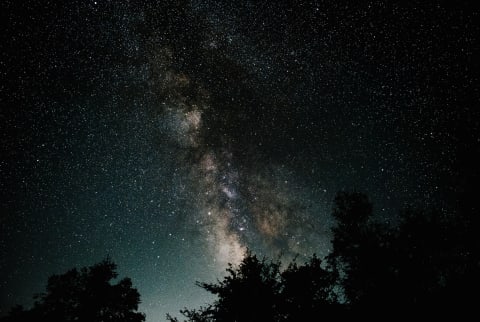Advertisement
Perseid Meteor Shower 2021: What It Is & How To See It


Beyond being prime beach and barbecue season, August happens to be a great month for stargazing, too. On the nights of August 11 and 12, the Perseid meteor shower—which NASA has dubbed one of the most impressive skywatching opportunities of the year—will shine extra bright in the skies. Here's what to know.
What the Perseid meteor shower is.
Meteor showers happen when Earth passes through a collection of debris left behind by a comet. As it does, the rocky matter lights up the entire world's sky in a shower of shooting stars. Multiple meteor showers happen every year, but the Perseid—named after the Greek hero Perseus—is the most dramatic. In previous years, people have reported seeing up to 100 meteors in an hour at the height of it.
This year, the skies won't be quite as active, but here in the U.S., the northern states can expect to see nearly 50 remnants of the Swift-Tuttle comet tonight and tomorrow night. Southerners might see up to 40. Check out this NASA map to see what's in store for your state.
While the meteor shower will be most dramatic starting tonight, it's actually been happening since July 23, with people across the world already starting to log their impressive celestial sightings.
How to see it:
To catch a glimpse of this incredible event, you'll want to flee to a dark area that's low in light pollution. If you're a city dweller, you, unfortunately, won't be able to see much (maybe two or three meteors), but NASA's Bill Cooke does note that "if someone in a city sees a Perseid, it has to be really, really bright and spectacular." Alternatively, you can tune in to NASA's ongoing livestream of the event to catch more of the action.
If you are able to escape the city lights, aim to get out between 3:30 and 4:30 a.m. your local time, when skies are at their darkest. According to The Old Farmer's Almanac, "The best times to watch the Perseids is late at night, in the middle of the night, or predawn. The meteor count is usually highest predawn when the skies are at their very darkest and when your position on Earth is forward to the motion through the dust cloud." The moon phase is on your side this year, as the dark new moon just happened a few days ago.
NASA recommends planning to stay out for at least an hour, to give your eyes plenty of time to acclimate to the dark skies. As you do, resist the urge to check your phone or use any other sort of bright light. Instead, just make a meditative moment out of your time under the stars.
The bottom line.
Whether you make a special trek to the woods or just happen to wake up in the middle of the night to pee, be sure to take full advantage of this week's starry spectacle. You might choose to wish upon a shooting star, as there's also some lucky astrological energy in the air, or just take Perseid as a reminder that we're all just stardust floating through this wacky world.

